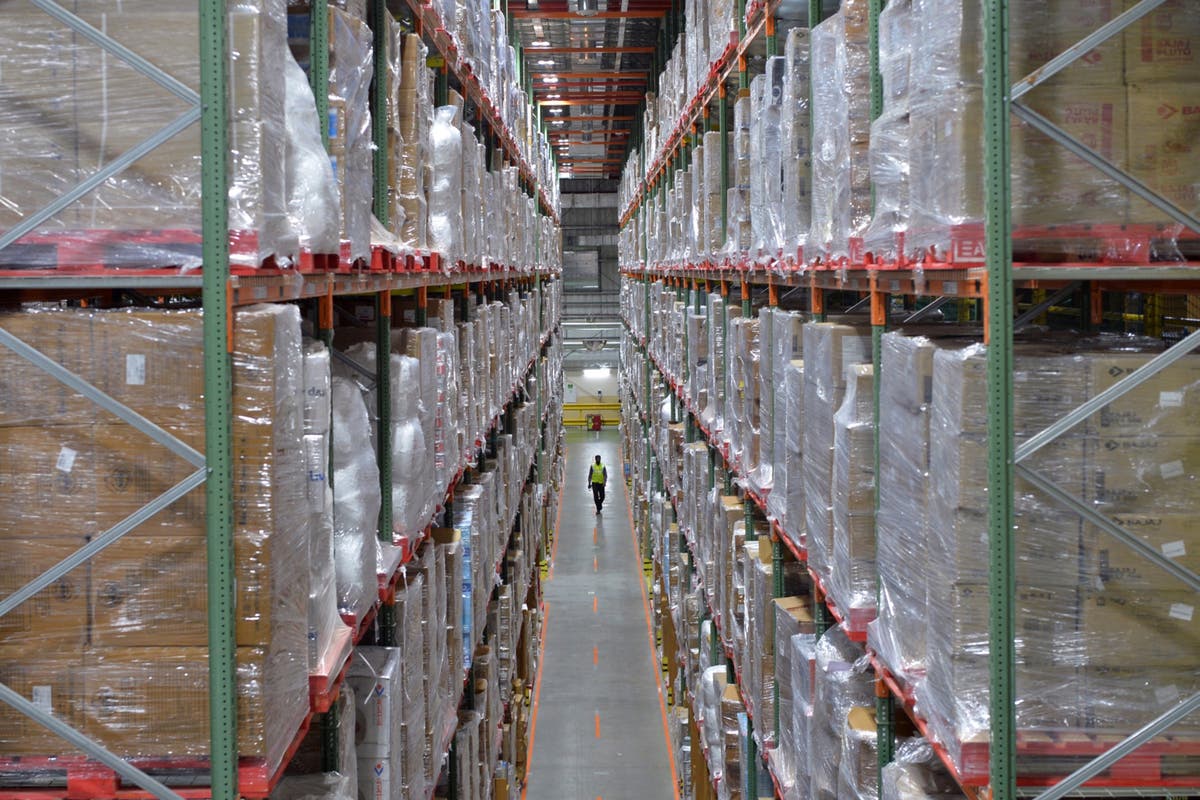Nearly 90 per cent of Amazon India’s warehouse employees say they are not allowed sufficient time to use the restroom, according to a new survey that adds to a growing body of evidence of poor working conditions at the multinational corporation.
The results of the survey – conducted by the UNI Global Union, the Amazon India Workers Association and Jarrow Insights, a workers’ cooperative based in London – are detailed in an exhaustive report on the conditions that warehouse workers and drivers of the e-commerce giant in India have to daily endure.
The Independent last month reported an incident at the company’s Manesar warehouse in the northern Haryana state where workers were allegedly asked to make a pledge that they would not take any breaks, including to drink water or go to the bathroom, until they met their targets as they worked amid a brutal heatwave.
India’s labour ministry intervened after the national human rights commission asked for an investigation.
Responding to the ministry, Amazon India confirmed the incident but played it down as “unfortunate and isolated”.
The survey paints a contradictory picture.
Nearly 81 per cent of Amazon India warehouse employees say work targets set by the company are difficult or very difficult to achieve.
And everyone will keep ordering from Amazon anyways :(
As unfortunate as it is, consumers won’t take on an individual cost to avoid this behavior, when it will have little effect if no once else does. The only real solution to this tragedy of the commons situation is government intervention to stop corporations from continuing this bullshit.
Literally what regulation is for though it has become a dirty word ever since businesses have essentially started running the world in place of monarchs
Feudalism and nobility have never really gone away, they just changed name.
Because we’re all underpaid and both morals and suffering are relative.
That fact is so damned motivating in every aspect of our lives EXCEPT as a common starting point for us to get along enough to actually do anything about it.
Being physically separated from those experiencing the pain contributes as well, I believe.
I’d like to think if Amazon offered maid service and folks could tell the housekeepers were being abused, it would greatly diminish the service’s popularity.
Doubtful. People would just reframe whatever was necessary in order to not challenge their opinion of their own experience, because changing such a thing is seen so negatively by so many people.
The “We’ll change things if we make it visable” approach has clearly failed.
I try to order from other places but there are some things that are only available on amazon for affordable price.
I cancelled my prime last December and havent ordered anything from Amazon. It feels good.
If it’s any consolation, I’ve stopped in a general sense. Sometimes we still do, but it’s rare these days.
Amazon is super consistent though, this is how they treat people everywhere.
Why do Indians tolerate this kind of abuse?
As an employee or as a consumer? As an employee, because Haryana has weak labour protections (ever wondered why all companies put their warehouses there?) and Amazon still probably pays better than farming. As a consumer, we actually had a relatively better alternative called Flipkart, but then they got bought by Walmart and … well, you know the drill. (But they still treat their workers better, according to a survey done last year.)





